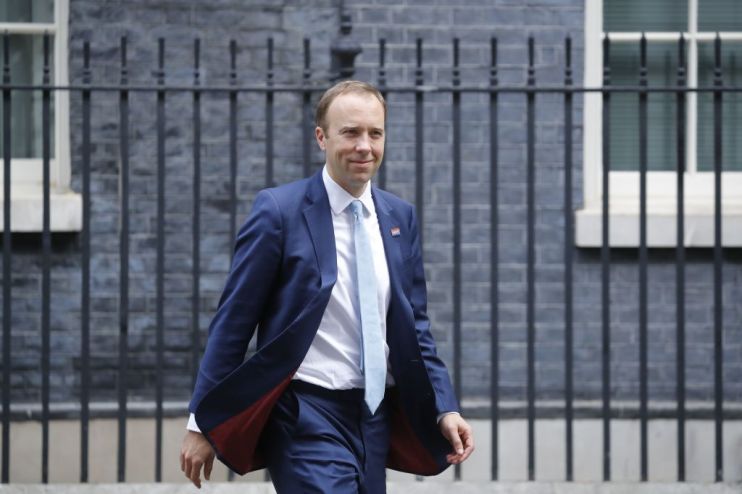Squeamish ministers must include casual sex exemption in lockdown roadmap

Sex and intimacy are a part of what makes us human, but the infinite ways that we all experience our sexuality and inter-personal relationships have been completely lost in the Government’s approach to lockdown and yesterday’s roadmap did not offer any real light at the end of the tunnel.
For most of the past year, thousands of single people and non-cohabiting couples have been unable to meet or spend time together indoors legally. The support bubble only helps those who are wealthy enough to live alone and are unencumbered by other emotional commitments they may choose to “bubble” with, rather than the person they met on Tinder last week.
At the start of the pandemic, Matt Hancock said people who weren’t already cohabiting should just commit and move in together. That advice completely failed to recognise the vast range of human experience where moving in together is just not an option.
When the Health Secretary embarrassingly stumbled over a question about the “casual sex ban” on Sky News last year, it gave a clue as to why this is such a problem in England. Sex, intimacy, and human contact are pushed down the political agenda below garden centres, nail bars and a family visit to the zoo because we are all too embarrassed to talk about it.
Sex is a private matter. Most people don’t want to shout about their sex life, or lack of it. And as Stacey Pritchard, a 36 year old single mother and wellness entrepreneur put it “I feel guilty for feeling this way in the current climate, but I do worry that I’ve lost a year where potential relationships have fizzled out without even meeting and another year like this could mean I miss out on meeting someone special completely.”
The way Mr Hancock talks about it doesn’t reflect how serious an issue it is for so many people. It is about their lives and their futures. Making sex and intimacy effectively illegal for thousands of people for months and years is also a human rights issue.
Consensual intimacy between adults is a key part of our right to private and family life protected under the Human Rights Act 1998. Human rights courts around the world have repeatedly upheld the right to a consensual adult sex life no matter who you are. The right can be restricted, for example to protect health or to protect the rights of others, but any restriction must be proportionate. This means restricting it as little as possible and considering alternatives that would be less damaging to private and family life.
We don’t ban sex to prevent sexually transmitted infections – not even with the threat of the gonorrhea superbug, which could be becoming resistant to vaccines. We educate people on sexual health and expect them to do their own risk assessment.
Despite initial precautions, other European countries have not enforced endless abstinence or cohabitational misery on their populations throughout the pandemic. And their infection rates are, in many cases, lower than ours.
In the Netherlands, the government recommended people should find a regular “sex buddy” to minimise transmission risks. The French approach draws a veil over who you’re with and what you are doing as long as you are not out after curfew and there are no more than six of you involved. And the Director General of the Danish Health Authority actively endorsed sex during the pandemic as healthy reportedly saying “We are all sexual beings, and of course you can have sex in this situation.”
So, what could we do differently to allow for love and intimacy in Britain in the time of Covid? We could just add in another euphemistic exception to the stay at home rule to allow for intimacy indoors. There is no need to embarrass poor Mr Hancock anymore – someone else could do the drafting. It could be limited to one to one if we don’t want to be too French about it.
It is a peculiarly British form of cruelty to say people can have a cleaner in their homes, but not a lover. The roadmap should control the ways we interact in groups to limit the spread of the virus. But at a time when we all need love and human contact, we need to allow people to make their own personal choices about who they touch in private. It is only human.
